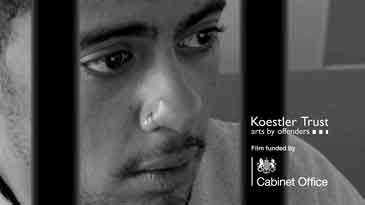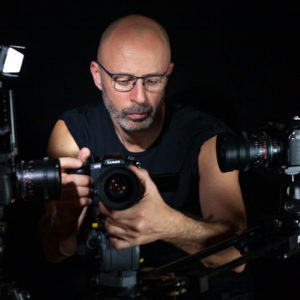Funding support films and videos produced for charities and other social enterprises can help secure more financial security. I’ve written a short guide to help teams involved get the most from their film or video project commissions.

Explain complex messages
One of the great strengths of funding support films and videos is that they can explain complex messages within a short space of time. Commissioning a one-off short film or video is a perfect solution for organisations and charities to visibly enhance the profile of their work, particularly on specific projects, to support their messages, campaigns, and funding-raising applications.
As an experienced professional filmmaker, I have successfully delivered many short films and video-based projects that have helped organisations and charities communicate their work to a broader audience and secure further funding for their projects or charities.
Some examples of my work in this field include creating original videos for The Irene Taylor Trust and The Reader Organisation, a series of seven different films for the Koestler Trust, and four films for Carnival Arts.
There are many points to consider when creating these unique films and videos.
Organisations and charities that commission films and videos may have limited knowledge of the filmmaking process. By involving a filmmaker at an early stage, any proposals can be investigated and discussed to ensure that all possible eventualities are covered. In some cases, a filmmaker may be able to improve the overall presentation and content of the film by suggesting different ideas for the commissioning team’s approval.
Funding support films – main points to consider
Some of the main points that might be considered when setting out to create a funding or charity film include:
Aims:
To ensure the aims of the project or charity film are clearly set out and fully understood. That is, what is the main objective of the film for the institution commissioning the film, and who is its target audience(s)?
Key messages:
Write down and confirm your understanding of the list of key messages the film must communicate.
Voices:
Identify the key players in any project. These key players may feature in a series of filmed interviews. By shooting a variety of people involved in various aspects of the project or charity, the audience will gain a clear sense of the project.
Who will be the range of people that you would want to feature in your interviews? What roles do they have in the project?
Your selection of voices can:
- Explain the benefits of ongoing support or renewing funding
- Demonstrate any relevant projects or process from start to end
- Highlight emotive stories from people involved
Permissions:
Does any permission need to be sought from any specific authorities, groups or locations? It is essential, particularly where vulnerable groups are involved, that all necessary permissions and certifications are obtained before the commencement of filming.
Timeline:
It can be a great idea to rough out a timeline that can give specific filming and delivery dates. The availability of locations and personnel for the periods of filming will need to be organised in advance. It will often be useful to obtain any set details for multiple or programmed events.
Distribution:
Where will the film be shown? Bespoke presentations? Television? Online? Film Festivals? YouTube? Social media? This information will be required to plan in advance the correct format and optimal duration for the films or versions of the film that are to be filmed, edited and broadcast.
Briefing documents for those involved:
It’s helpful if these can be issued to all personnel who are to be involved in the project. Contributors to be filmed can also benefit from having a clear understanding of the project’s aims.
Budget:
Do you have a fixed budget for the project or do you require a quote? In many cases, decisions as to the scope of any particular film are made according to sometimes minimal availability of funding. The professional opinion of an experienced filmmaker can help ensure the best can be achieved with the funding resources available.
Style and appearance:
Do the commissioners of the film have any pre-determined ideas, guides or examples of how they would like the film to look and sound? If not a filmmaker will be able to suggest different styles or provide examples of similar filmed projects that could help any team reach agreement on their preferences.
Once these main points have been considered by the team selected to the project, it can be helpful for the filmmaker to then have a meeting with the relevant team to go through the whole process together. This can help flag up any potential concerns. It also creates an opportunity to discuss ways in which the film might be improved or enhanced. This also gives the filmmaker some insight as to who or what would create the best impact on the messaging required.
One of the funding films I produced, filmed and edited can be viewed on the Koestler Trust website. If I can help you with producing your film project or if you have any questions, please do get in touch.
You might like to read these articles or for more tips and advice check out my video production blog.



